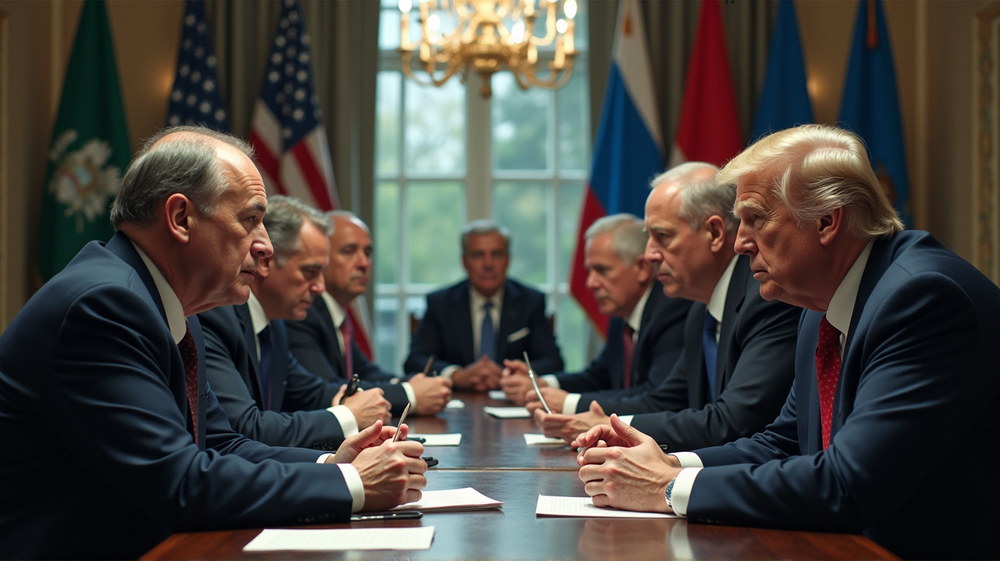In a shocking development, Israel has expanded its offensive against Hamas by launching a strike targeting the group’s leadership in Qatar. This move has sent ripples through the international community, with reactions ranging from condemnation to support.
The Resilience of Hamas Leadership
Tuesday, September 9, 2025, marked a day of tension and near tragedy as Israel aimed its military might at Hamas leaders in Doha, Qatar. While the strike claimed the lives of five lower-ranking members, the top echelons of Hamas reportedly remained unscathed, according to Hamas statements. Qatar, which has seen its security shaken by this act, lamented the loss of one of its own Internal Security Force members.
International Outcry: Allies and Adversaries Speak Out
Across the globe, diplomatic ties were tested as nations reacted to Israel’s bold strike in Qatar. Germany’s Foreign Minister Johann Wadephul voiced severe criticism, dubbing the attack an “unacceptable violation.” This sentiment was echoed by multiple countries, including Morocco, Sudan, Libya, the UK, and Syria, each condemning the infringement of Qatar’s sovereignty.
Calls for Restraint and Ceasefire
United Nations Secretary-General Antonio Guterres stood among the voices urging restraint. He emphasized the need for all parties to work towards peace, stating this aggression only endangers ongoing diplomatic efforts to secure a ceasefire in Gaza. According to AP News, Qatar has played a pivotal role in mediating the conflict’s resolution.
Regional Diplomacy and the Role of Key Players
Saudi Arabia and Turkey reinforced their support for Qatar, condemning the attack as a threat to peace. As tensions continue to mount, Turkey’s call for concerted international pressure highlights the region’s precarious position, where diplomacy hangs by a thread.
Dialogue Amidst Discord
Amidst this global tension, U.S. diplomacy attempted to mollify the situation. The White House described the attack as “unfortunate,” and revealed foreknowledge, yet no participation from U.S. forces. Meanwhile, internal discussions within the UN underscored the dire need for peaceful resolutions.
Echoes of Distant Thunder: Implications for the Middle East
In countries like Lebanon and Iraq, the strikes prompted fears of further destabilization. Lebanon’s President Joseph Aoun framed the incidents as an impediment to regional stability, highlighting the ongoing strain across the Middle East. Egypt and the Arab League joined the chorus of nations concerned about escalating violence and the dire humanitarian impact on Gaza’s civilians.
In the midst of this chaos, the call for a ceasefire and the delivery of humanitarian aid have become the echoing refrain that leaders across the world must heed.












